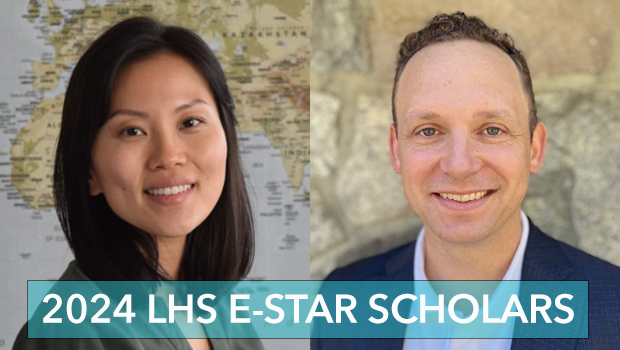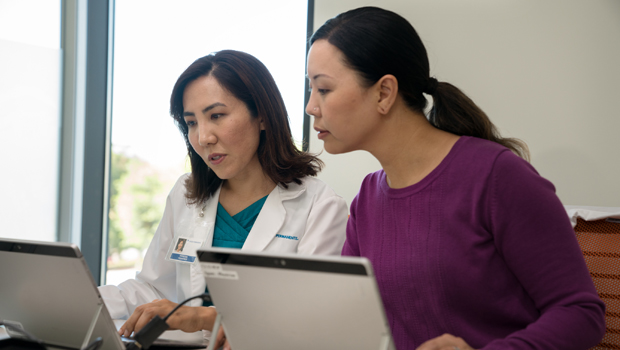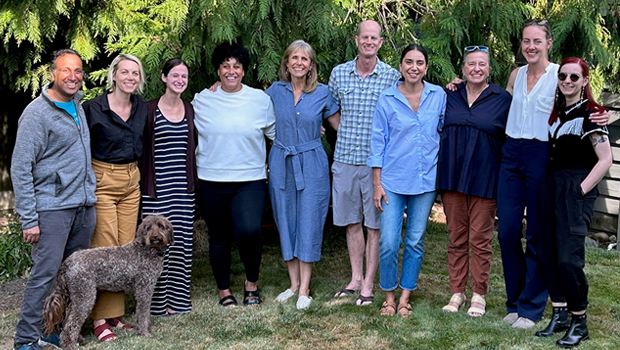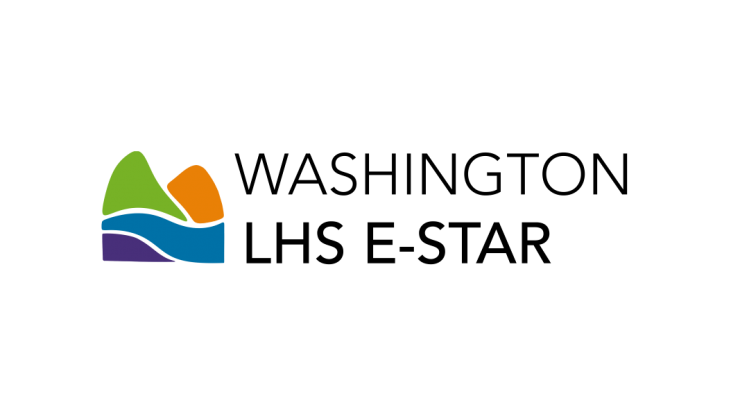First 2 scholars selected for program training early-career scientists

LHS E-STAR scholars will conduct research projects to improve health care
The Washington Learning Health System Embedded Scientist Training and Research (LHS E-STAR) Center is excited to announce the selection of its first 2 scholars. Michelle Shin, PhD, MSN, MPH, RN, and Logan Trenaman, PhD, MSc, were chosen to participate from a competitive first round of applicants.
The scholars will partner with 2 Federally Qualified Health Centers in Washington state — Neighborcare and Community Health of Central Washington (CHCW) — on research projects to improve childhood vaccination and colorectal cancer screening, with input from both patients and leadership in these organizations.
“Washington LHS E-STAR is founded on partnerships between researchers and primary care organizations, and we are so fortunate that Drs. Shin and Trenaman are bringing their research expertise to these collaborations with Neighborcare and CHCW,” said program co-director Paula Lozano, MD, MPH, who co-leads the center with James Ralston, MD, MPH.
“Over the next 2 years, Michelle and Logan will engage with health care leaders, care teams, community members, and LHS scientists to grow their skills and conduct research that can improve health care for patients.”
In learning health systems research, scientists design and conduct research projects in partnership with real-world care organizations to continually improve care and health across diverse populations. The goal of the recently funded LHS E-STAR program is to elevate equity and community in LHS research and help meet the challenges of providing high-quality primary care. The program will train scholars in research methods while building the infrastructure for formal, sustainable partnerships with primary care organizations, including 4 Federally Qualified Health Centers in rural and urban parts of Washington state.
Led by Kaiser Permanente Washington Health Research Institute (KPWHRI) and the University of Washington, the LHS E-STAR program builds on previous success training early-career scientists. Mentors from the University of Washington and KPWHRI will support the scholars throughout their tenure. KPWHRI’s Center for Accelerating Care Transformation (ACT Center), a leader in research-care delivery partnerships, will support the E-STAR projects with LHS research expertise.
Michelle Shin is an assistant professor in Child, Family, and Population Health Nursing at the University of Washington. Her research focuses on using implementation science methods to improve disparities in cancer care for medically underserved populations. She is excited to integrate her experience working as a nurse and educator in safety net health care settings into her research as an E-STAR scholar. She will work with families, care teams, and leaders at Neighborcare to identify barriers and facilitators to childhood vaccination, then use that information to inform development of a team-based care intervention. Improving vaccination rates is a priority for Neighborcare, which primarily serves people who experience difficulties accessing care. Her primary E-STAR mentor will be Allison Cole, MD, MPH, an associate professor in the Department of Family Medicine at the University of Washington.
Logan Trenaman is an assistant professor in Health Systems and Population Health at the University of Washington. In his research, he focuses on patient-centered care, including developing tools to support shared decision-making, soliciting patient and care team preferences, and investigating and improving patient outcomes and experiences. As an E-STAR scholar, he is looking to build expertise in leading mixed-methods research studies and partnering with underserved communities to address health disparities. He will collaborate with CHCW on a project to improve colorectal cancer screening rates and follow-up care for abnormal findings from screening, with a focus on Latino men, using electronic health record data and patient interviews to understand disparities and perspectives about screening. CHCW provides comprehensive care to people in Central Washington state, regardless of ability to pay. His primary mentor will be Linda Ko, PhD, MPH, a professor in Health Systems and Population Health at the University of Washington.
In October, the E-STAR program will announce a call for letters of interest for the next 3 scholars. Two will partner with Kaiser Permanente Washington, and one will partner with Veterans Affairs Puget Sound Health Care System. For more information about this opportunity, please reach out to Monica Fujii at monica.m.fujii@kp.org or visit Washington LHS E-STAR.



